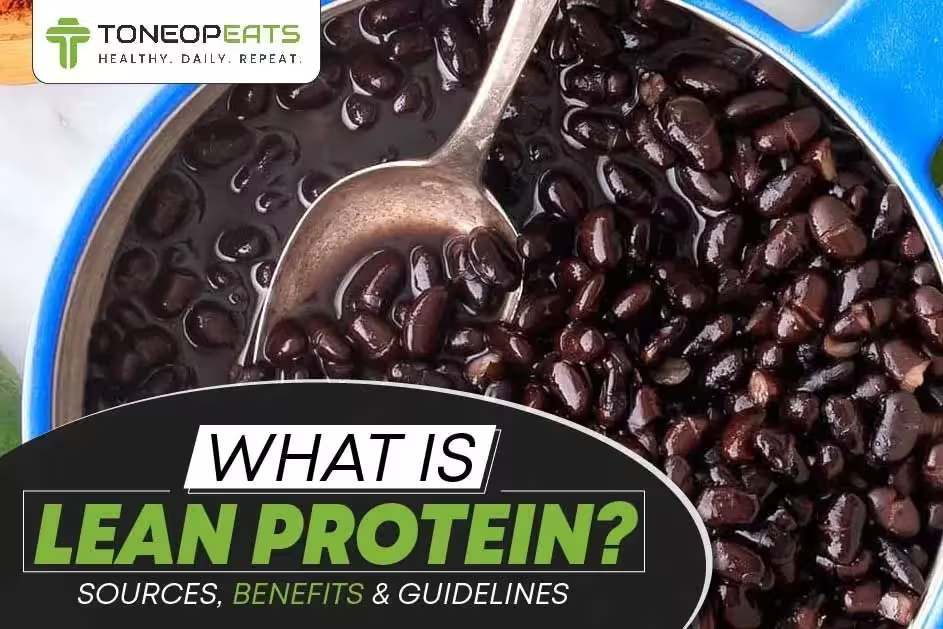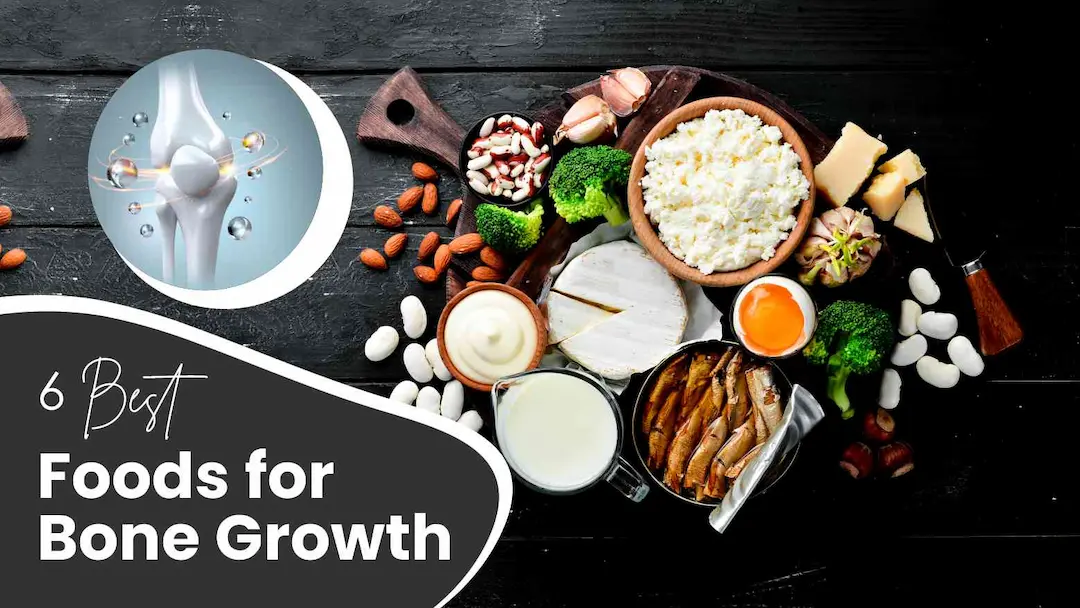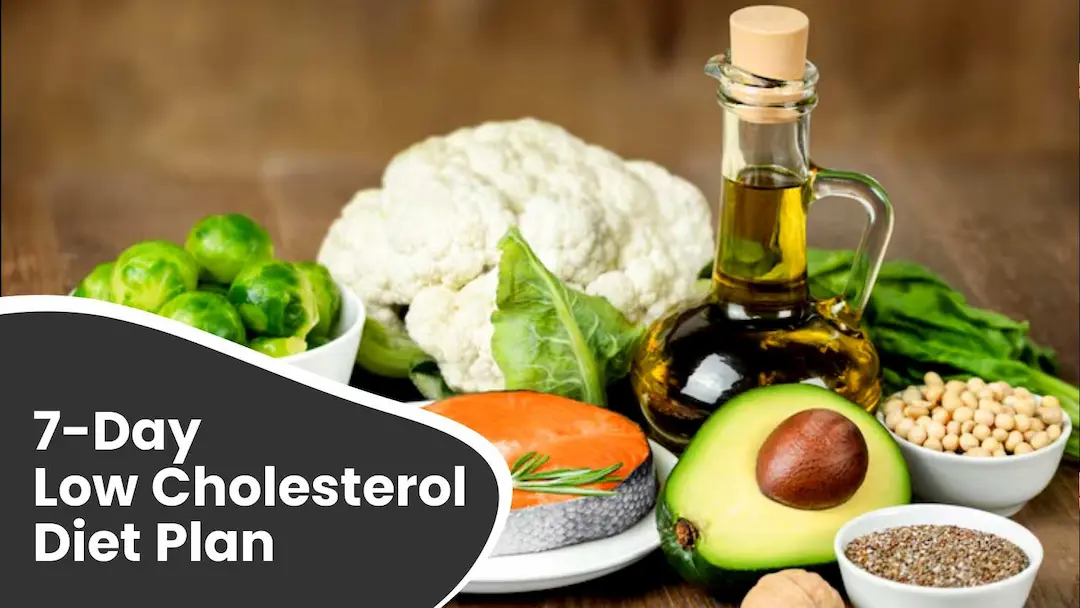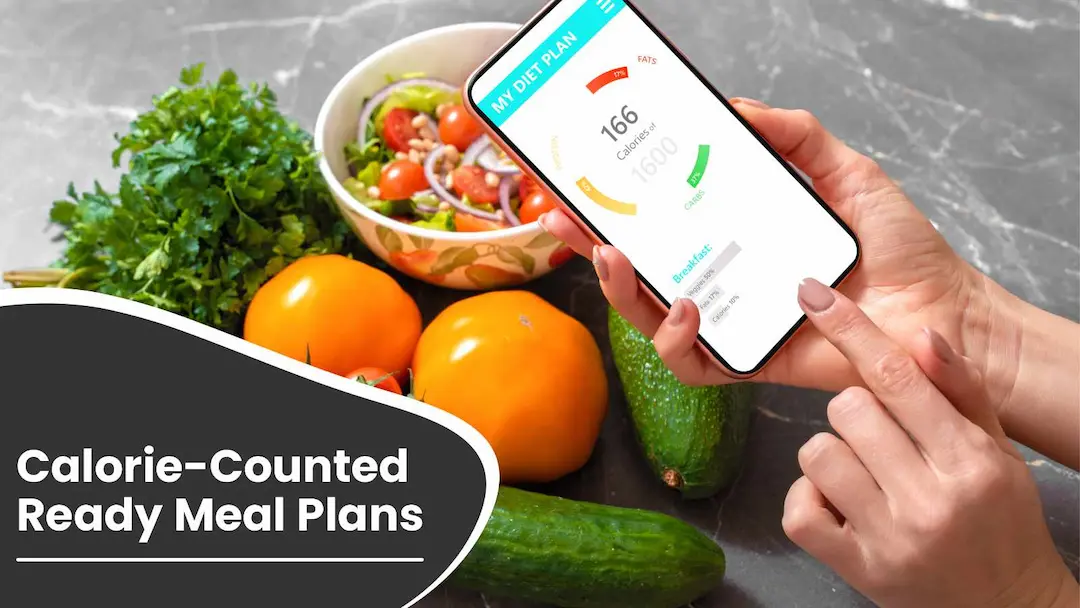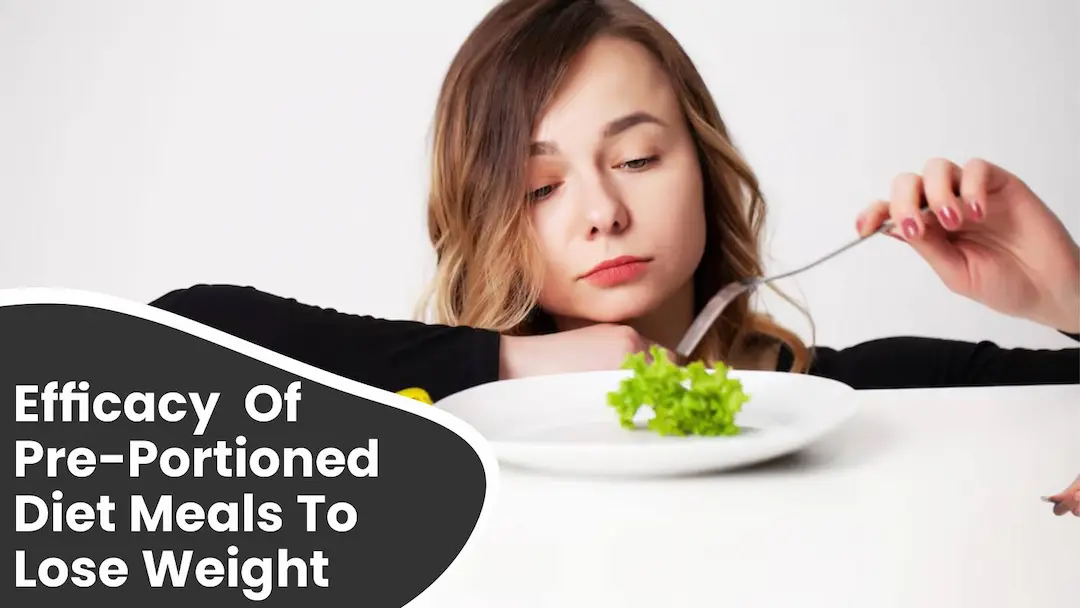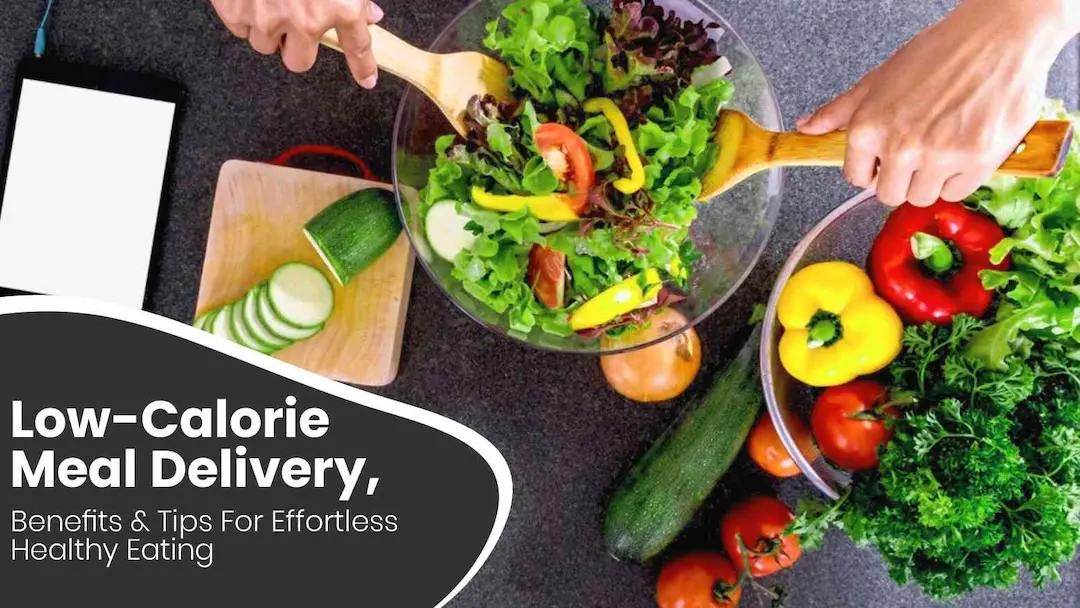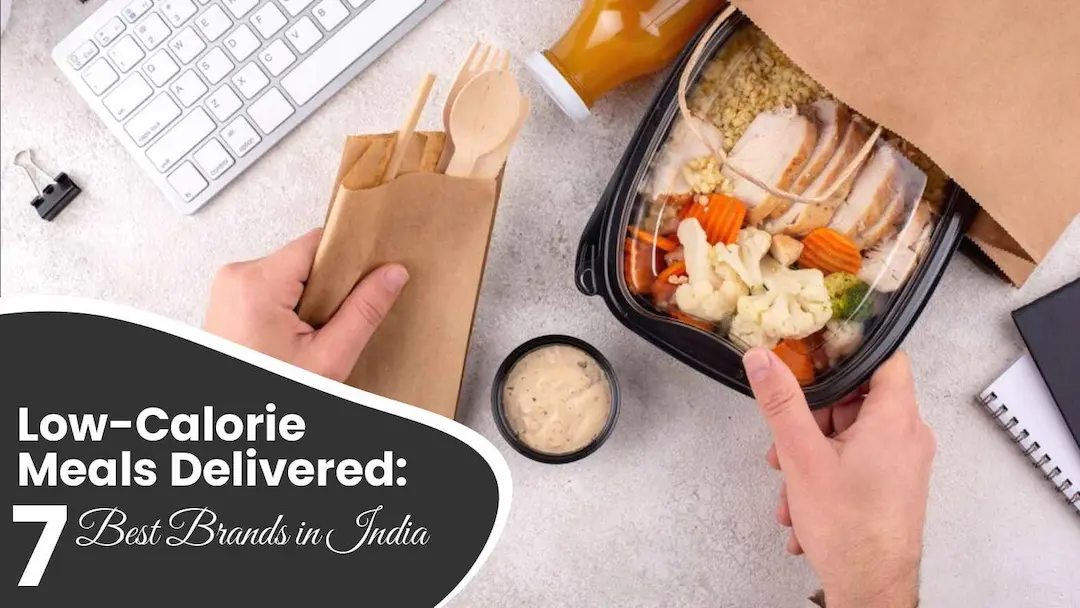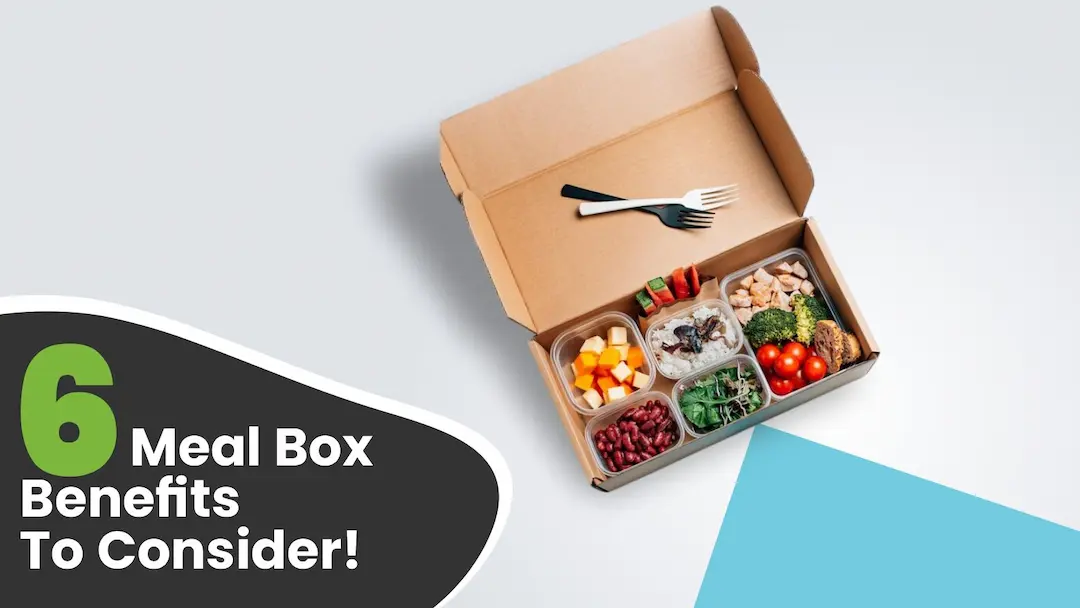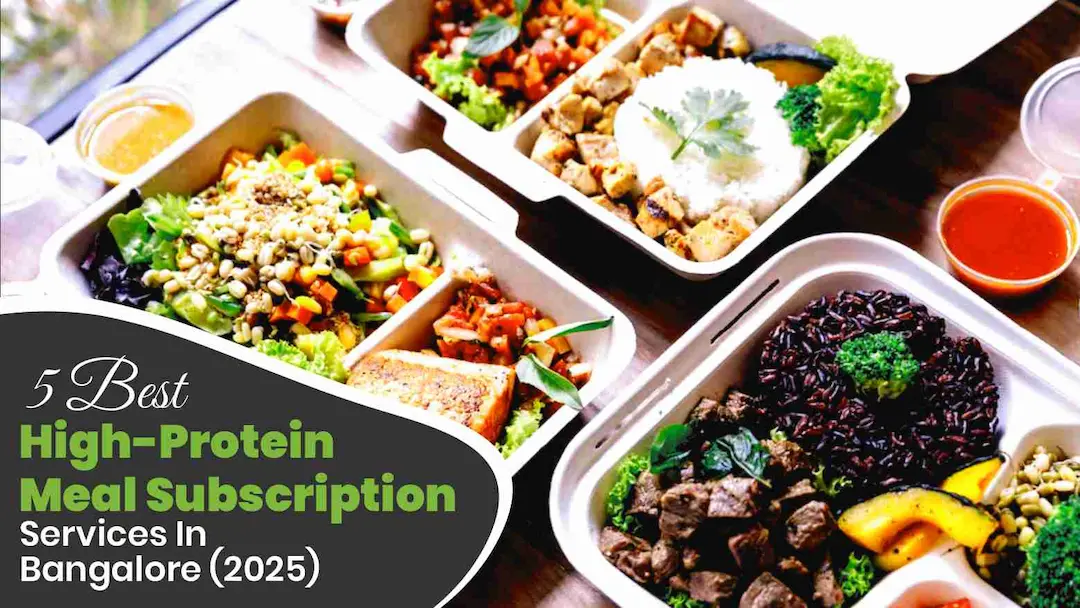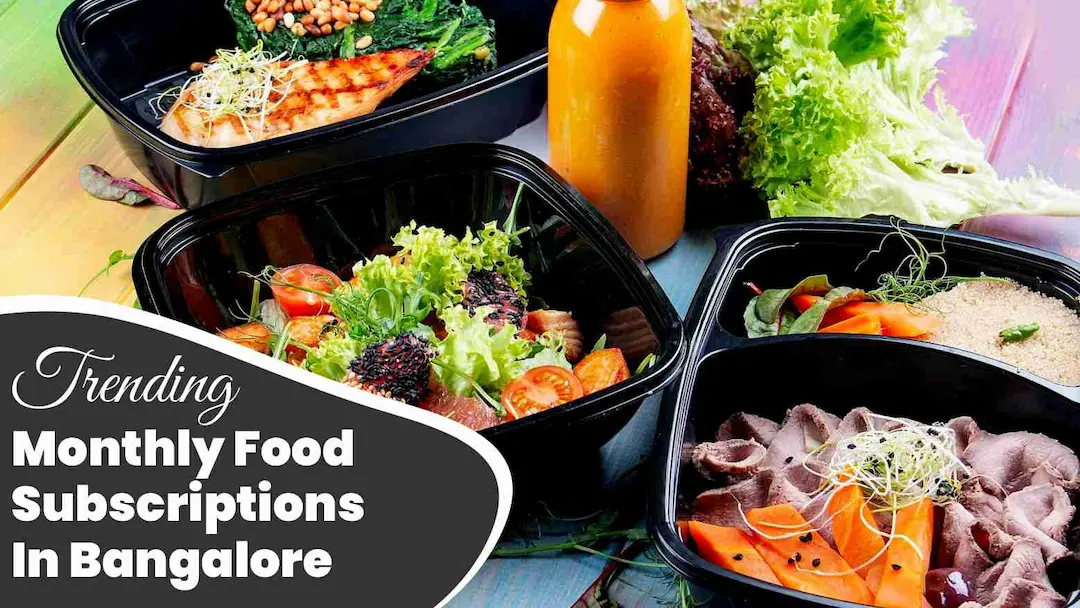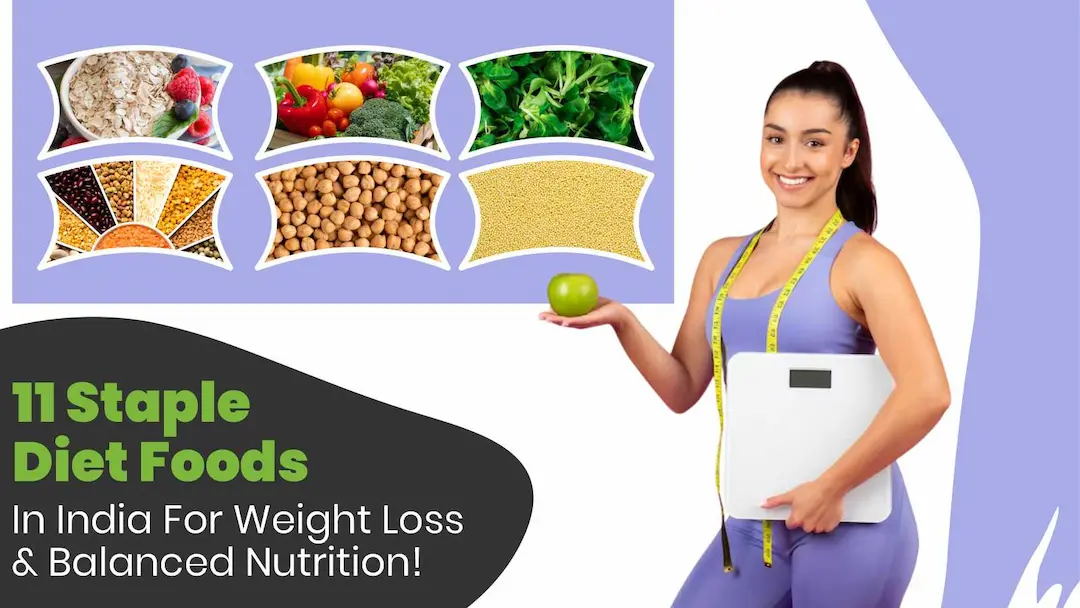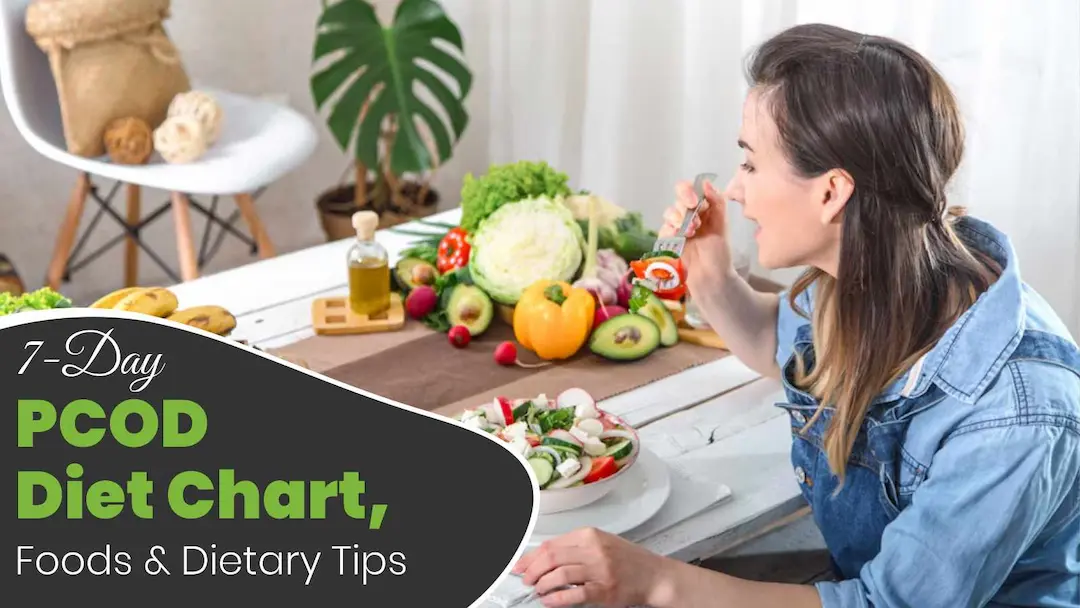Trying to get high-protein and low-fat benefits in a single serving? But with so many protein sources out there, how do you choose the best ones for you? This is where lean protein steps up to the plate. But what is lean protein? It offers a concentrated source of protein while keeping fat, especially saturated fat, in check. This makes them a healthier alternative to their fattier counterparts for many reasons, from building and repairing tissues to strengthening your immune system. Including various lean protein sources, like plant-based and dairy sources, in your regular diet is essential for a healthy approach to fitness.
So, let's discuss and learn all about sources of lean protein, including 11 high-protein and low-fat foods and significant benefits to discover how it can elevate your health and holistic wellness.
Table Of Contents
1. What Is Lean Protein?
2. 11 Best Lean Protein Foods
3. 4 Major Sources Of Lean Protein
4. 9 Benefits Of Lean Protein
5. How Much Lean Protein Per Day?
6. The Final Say
7. FAQs
8. References
What Is Lean Protein?
Lean protein describes foods that are high in protein while keeping fat, particularly saturated fat, in check. Our body uses protein to build plus repair tissues, create enzymes and hormones, and keep our immune system strong.
Examples include skinless chicken breast, white fish, egg whites, lentils, and low-fat dairy products. So, the next time you build your meals, consider incorporating lean protein sources for a nutritious and health-conscious approach.
Also Read: 18 Satisfying And Healthy Snack Ideas For Weight Loss For Healthy Munching
11 Best Lean Protein Foods

Let’s understand why these 11 best lean protein foods are considered the widely consumed healthy options:
1. Tofu (Firm)
Firm tofu is an excellent source of lean protein, especially for those following a recommended vegetarian or vegan diet. It is made from soybeans and is rich in essential amino acids, making it a required complete protein. Tofu has a dense texture that perfectly holds up well in stir-fries, soups, and grilled dishes.
It is low in fat and calories yet high in protein, providing about 10 grams of protein per half-cup serving. Also, tofu is a really good source of iron, calcium, and magnesium, contributing to overall health.
2. Quinoa
Quality quinoa is a versatile whole grain that is high in protein and considered a complete protein, containing all nine essential amino acids. This makes it an ideal protein source for vegetarians and vegans.
One cup of cooked quinoa adequately provides about 8 grams of protein, fibre, vitamins, and minerals. Its nutty flavour and fluffy texture make it a great addition to salads, bowls, and as a side dish. Quinoa is also gluten-free, making it suitable for those with gluten sensitivities.
3. Black Beans
Black beans are a nutrient-dense legume packed with lean protein, fibre, and essential vitamins and minerals. One cup of freshly cooked black beans offers about 15 grams of protein. Due to their high protein content and recipe versatility, black beans are a staple in many vegetarian and vegan diets.
Black beans can be used in warm soups, stews, salads, and as a base for veggie burgers. They are also rich in required antioxidants, which help reduce inflammation and support heart health.
4. Tempeh
Tempeh, like tofu, is made from soybeans but has a firmer texture and a nuttier flavour due to its fermentation process. It is a powerhouse of lean protein, providing about 21 grams per 4-cup serving.
The fermentation process enhances its nutritional profile and makes it easier to digest. Tempeh is a complete protein rich in probiotics, promoting gut health. It can be sliced, marinated, grilled, or crumbled into dishes like stir-fries and salads.
5. Cottage Cheese (Low-Fat)
This low-fat cottage cheese is a natural source of lean protein, particularly popular among athletes and those looking to build muscle. It provides nearly 14 grams of protein per half-cup serving while keeping fat content low.
Cottage cheese is also a natural source of calcium and B vitamins. Its mild flavour plus creamy texture make it a versatile add-on that can be consumed on its own, mixed with fruits, or used in savoury dishes like salads and pasta.
6. Fat-Free Milk
Fat-free milk is a lean protein source of about 8 grams of protein per glass. It contains all the required amino acids the body needs, making it a complete protein. Besides protein, fat-free milk is rich in calcium, vitamin D, and other beneficial nutrient content for bone health.
It is a great addition to smoothies and cereal and is a base for protein shakes. Fat-free milk helps reduce calorie and fat intake while benefiting from its high nutritional value.
7. Greek Yogurt (Non-Fat)
Non-fat Greek yoghurt is a thick, creamy dairy product that is exceptionally high in protein, offering about 10 grams per 100 grams serving. It is strained to remove most of the present whey, resulting in a denser product with more protein than regular yoghurt.
Greek yoghurt is also rich in probiotics, which support digestive health. It can be enjoyed independently, with fruits, or used as a preferred base for smoothies and dips. Its high protein content makes it a satisfying and nutritious snack or meal addition.
8. Low-Fat Kefir
Low-fat kefir is a fermented dairy drink rich in protein and probiotics. It provides about 11 grams of protein per glass and is known for its tangy flavour and smooth texture. Kefir's high probiotic content is beneficial for gut health, helping maintain a healthy balance of gut bacteria.
It can be consumed independently, added to smoothies, or used as a substitute for milk in various recipes. Choosing low-fat kefir ensures you get the protein benefits without the extra fat.
9. Egg Whites
Egg whites are a natural source of lean protein, offering about 3.6 grams per large egg white with minimal calories and no fat. They are popular in high-protein, low-fat diets, especially among athletes and bodybuilders.
Egg whites can be used in different dishes, from omelettes and scrambles to baking and meringues. They provide essential amino acids and are easy to digest, making them a convenient and nutritious protein source.
10. Skinless Chicken Breast
Skinless chicken breast is one of the most beneficial and widely consumed lean protein sources. It provides nearly 26 grams of protein per 3-ounce serving while being low in fat and calories.
Chicken breast is always recommended and can be prepared by grilling, baking, and sautéing. It is a staple in many diets due to its high protein content, which supports muscle growth and repair. Removing the skin significantly reduces the excessive fat content, making it a healthier choice.
11. White Fish (Tilapia)
Tilapia is a mild-flavoured white fish that is an excellent lean protein source, providing about 23 grams per 3-ounce serving. It is low in fat and calories, making it a recommended option for those looking to increase their healthy protein intake without consuming excess fat.
Tilapia is also a beneficial source of essential nutrients like omega-3 fatty acids, which effectively support heart health. It can be baked, grilled, or sautéed, and its mild taste makes it suitable for various dishes and flavour profiles.
Also Read: Refreshing 12 Best Healthy Lunchbox Ideas For Nutritious Meal Times!
4 Major Sources Of Lean Protein
Consider these highly preferred major sources of lean protein and opt for the one which suits your taste and preference:
Source Type | Examples | Benefits |
Animal Sources | Chicken breast, turkey breast, fish (tilapia, salmon) | High in essential amino acids, supports your muscle growth and repair, and is rich in vitamins and minerals like B12 and iron. |
Plant Sources | Tofu, tempeh, lentils, black beans, quinoa, edamame | Suitable for vegetarians and vegans, it contains fibre and antioxidants and is often lower in fat and calories. |
Dairy Sources | Greek yoghurt (non-fat), cottage cheese (low-fat), fat-free milk, low-fat kefir | High in calcium and probiotics, supports bone health and digestive health, and provides a complete protein profile. |
Supplements | Whey protein, casein protein, pea protein, soy protein | Convenient and easy to use, it helps meet daily protein needs and is ideal for post-workout recovery and muscle maintenance. |
9 Benefits Of Lean Protein
Let’s explore and understand these targeted benefits of lean protein sources for your overall wellness:
1. Helps In Weight Management
Incorporating lean protein can be highly effective for weight management. Lean proteins are low in fat plus calories, which helps reduce overall calorie intake. High-protein foods also increase the feeling of fullness and reduce bad appetite, making it easier to control portions and avoid overeating.
2. Aids in Muscle Building And Repair
Proteins are made up of required amino acids, which are the growth blocks of your body’s muscle tissue. Consuming lean protein sources gives your body the necessary amino acids to repair and grow muscles, especially after exercise. This is vital for athletes, bodybuilders, and anyone engaged in daily physical activity, as it helps improve strength, endurance, and overall physical performance.
3. Improves Satiety Levels
Eating lean protein can significantly improve satiety levels, helping you feel full for longer periods. Protein takes longer to digest than adequate carbohydrates and fats, which prolongs the feeling of fullness and reduces the chances of snacking between meals. This can be particularly recommended for people trying to manage their weight or actually reduce calorie intake, as it helps control hunger and reduces the temptation to consume high-calorie, low-nutrient foods.
4. Boosts Metabolic Rate
Lean protein can boost your metabolic rate, aiding in more efficient calorie burning. The thermic effect of food (TEF) is relatively higher for protein than for required fats and carbohydrates, meaning it uses more energy to digest and metabolise protein. This increase in energy expenditure can enhance your overall metabolism, helping you properly burn more calories throughout the day.
5. Strengthens Bone Health
Protein is essential for the formation plus maintenance of bone tissue. It helps improve bone density and strength, reducing the risk of consistent fractures and osteoporosis, especially in older adults. Lean protein sources also often contain other bone-healthy nutrients like calcium and phosphorus. A diet rich in lean protein can thus contribute to stronger, healthier bones.
6. Helps Fight Off Infection
Proteins are needed to produce antibodies and immune cells that effectively help fight off infections and illnesses. Consuming adequate amounts of lean protein gives your body the necessary building blocks to maintain a robust immune response. This is essential for overall health and helps protect against common infections and diseases.
7. Reduces Heart-Related Issues
Including healthy lean protein in your meals can reduce the risk of heart-related issues. Lean proteins are typically low in saturated fat, which helps in lowering your body’s cholesterol levels and reduce the risk of heart disease. Also, lean protein sources like fish contain omega-3 fatty acids, which eventually support your heart health by reducing visible inflammation and improving blood vessel function.
8. Beneficial For Diabetes Treatment
Protein has a minimal effect on blood glucose levels, making it a suitable source for people with diabetes who need to effectively manage their blood sugar. Consuming lean protein can also help stabilise blood sugar levels and improve insulin sensitivity. Including lean protein in meals can also prevent spikes in blood sugar and provide sustained energy, which is crucial for diabetes management.
9. Increases Brain's Cognitive Function
Essential proteins are involved in the production of neurotransmitters, which are required chemicals that transmit signals in the brain. Adequate protein intake supports cognitive functions such as memory, focus, and mental clarity. Lean protein sources often contain essential nutrients like omega-3 fatty acids and B vitamins, further supporting brain health.
How Much Lean Protein Per Day?
Your body relies on healthy protein to build muscle, keep you energised, and even support a strong immune system. However, not all protein options are created equal. The amount of lean protein you need per day depends on several factors, including:
- Body weight: People with more muscle mass generally need more protein.
- Activity level: Highly active individuals and athletes will need more protein to support muscle group repair and growth.
- Age: Your bodies become relatively less efficient at using protein as we age. Older adults may need slightly more protein to maintain muscle mass.
- Overall health: Certain medical conditions may require adjustments to protein intake.
You can refer to this RDA guideline for protein intake:
Protein Needs | Grams per kilogram (kg) | Grams per pound (lb) |
RDA Minimum for Adults | 0.8 | 0.36 |
Most People (Maintenance) | Up to 2.2 | Up to 1.0 |
Weight Loss | 1.6 - 2.2 | 0.73 - 1.0 |
Athletes & Heavy Exercisers (Weight Loss) | 2.2 - 3.4 | 1.0 - 1.5 |
More active adults and people trying to build muscle | 1.2-2.0 | 0.55-0.9 |
Note: It's important to remember that these are just guidelines. If you have any concerns about your protein intake, it's always best to ask a registered dietitian or healthcare professional. They can help you determine the right amount of protein for your individual needs and goals.
Also Read: Here Are 10 Wholesome & Healthy Snacks For Kids To Enjoy Any Time!
The Final Say
Given its incredible nutritional benefits, lean protein sources are like nature's all-in-one package for your body. They provide essential protein for building and repairing tissues, energising you, and supporting a robust immune system. Unlike their fattier counterparts, lean protein keeps saturated fat in check, promoting heart health and weight management.
So, the next time you plan your meals, consider incorporating different lean protein sources—from fish and legumes to low-fat dairy—to get essential health benefits and feel your best from the inside out.
FAQs
1. What are examples of lean protein?
Healthy lean proteins are essential proteins that are low in fat. Some examples include:
- Chicken breast (skinless)
- Fish (like cod, tilapia, and salmon)
- Egg whites
- Low-fat dairy products (like Greek yoghurt, cottage cheese, and skim milk)
2. What are some of the best vegetarian sources of high-protein foods?
Vegetarian sources of high protein include:
- Legumes (lentils, chickpeas, and black beans)
- Tofu and tempeh
- Seitan
- Quinoa
- Nuts and seeds (almonds, chia seeds, and hemp seeds)
- Edamame
- Greek yoghurt (dairy or plant-based options)
- Cottage cheese (dairy or plant-based options)
3. How beneficial is low-fat protein?
Low-fat protein is beneficial because it:
- Reduces calorie intake while still offering essential nutrients
- Supports muscle maintenance and growth without adding extra fat
- Improves heart health by lowering the intake of saturated fats
- Aids in weight balancing by promoting satiety and reducing overall calorie consumption
- Supports metabolic health by maintaining healthy blood sugar levels
4. How do you select healthy protein sources?
To select healthy protein sources:
- Choose lean meat choices like chicken, turkey, and fish
- Opt for plant-grown protein options such as beans, lentils, and tofu
- Incorporate a variety to ensure a wide range of nutrients
- Read labels to check for added fats, sugars, and sodium in processed proteins
- Consider portion sizes to avoid overeating
5. What is a complete protein for any diet?
A complete protein offers all nine required essential amino acids, which are not produced by your body alone. Examples include:
- Animal proteins (meat, poultry, fish, eggs, and dairy)
- Soy products (tofu, tempeh, and edamame)
- Quinoa
- Buckwheat
- Chia seeds
- Hemp seeds
- Amaranth
References
- https://www.medicalnewstoday.com/articles/lean-protein-sources
- https://www.health.com/lean-protein-foods-to-eat-8426344
- https://www.medicalnewstoday.com/articles/321522
- https://uniconutrition.com/blog/diet-weightloss/what-is-lean-protein
- https://blog.nasm.org/nutrition/how-much-protein-should-you-eat-per-day-for-weight-loss?utm_source=blog&utm_medium=referral&utm_campaign=organic&utm_content=safeandhealthyweightloss
- https://www.medicalnewstoday.com/articles/protein-intake
- https://www.mdpi.com/2072-6643/10/3/360
About ToneOp Eats
ToneOp Eats is your go-to health kitchen, delivering nourishing meals in Bhopal, Indore & Bangalore. The meals are prepared with strategically planned nutrition and portions for your health goal. With just three simple steps, you can subscribe to a meal plan for weight loss, muscle gain, or balanced diet goals. Experience the perfect blend of taste and wellness in our nutrient-dense and calorie-counted range of meals, including protein-rich grills and meal bowls, full of fibre salads & smoothies, workout-friendly protein 30,40,50 meals and refreshing juices.







